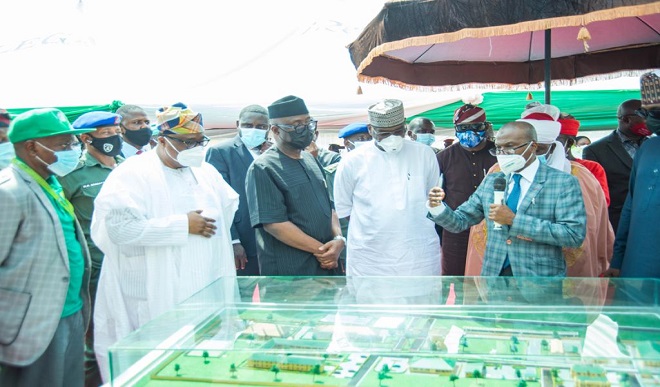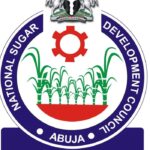The newly commissioned Nigeria Sugar Institute (NSI) based in Kwara state would assist to raise local sugar production towards attaining self sufficiency and assist the sustenance of the 2017 Nigeria Sugar Master Plan (NSMP) said the National Sugar Development Council (NSDC).
Nigeria need to increase its local sugar production in order to meet up with the consumption.
- Nigerian short film ‘Lizard’ unveils for 2021 Sundance film festival
- Insurgency warfare new to Nigerian Army – Buratai
According to market intelligence and corporate data provider Asokoinsight.com, local sugar consumption has grown by 94 percent in the past two decades, from 645,000 metric tonnes in 1990 to 1.25 million metric tonnes in 2017.
In a 2019 investigation by Daily Trust, Nigeria spent $1.87 billion on the import of 5.54 million metric tons of raw sugar between 2015 to 2018.
During the commissioning of the institute, the Executive Secretary of NSDC, Dr. Latif Busari gave the assurance that NSI would help change the narrative on sugar production in the country.
The commissioning of the institute was witnessed by Kwara State Governor, Abdulrahman Abdulrazaq, and the Minister of Industry, Trade and Investment, Niyi Adebayo.

NSI to aid provision of seed cane
The executive secretary hinted that the institute, a partnership effort between the public and private sector, and also collaboration with world-class sugar institutes in India and Mauritius, would aid the provision of clean and pure seed cane for growers in the country.
As a partnership project between both sectors, the institute will be funded and managed by the operators in the industry, Busari explained.
“Going forward however, this institute is to be largely funded and managed by the sugar operators. It is a unique experiment in public-private sector collaboration to advance research and capacity development for an industrial sector in Nigeria and all stakeholders owe it to Nigerians to ensure its success.
“Therefore, all the Research and Development as well as capacity development functions which Council used to carry out, in collaboration with other partners are now to be handled directly by the institute, with Council’s support”, he added.
Emphasising that NSI was a critical enabler for the implementation of the NSMP, Busari stated that the institution would support the drive for a virile and competitive sugar industry as well as ensure a drastic reduction in foreign exchange loss.
He explained that with the sugar institute in operation, Research, Development and Innovation would be embarked upon often and Technical Manpower Development would be done through NSI in the country.
Busari stated, “The Sugar Council, working closely with our operators had collated the various technical manpower needs covering the plan period between 2017 and 2023, identified the training programmes and developed curriculum for the courses that would be offered at the Institute.”
18 instructors undergoing training
He, however, disclosed that NSI has begun to train 18 trainee instructors to ensure that the ongoing plan to boost sugar industry achieve desired purpose.
The secretary noted that six of the 18 trainees were currently taking courses in agriculture and field operations while the 12 others were gaining required knowledge on factory related operations.
Busari argued that the commissioning and training would have commenced earlier but was delayed due to COVID-19 lock-down and international travel restrictions imposed to prevent COVID-19 virus transmission.
The Minister of Industry, Adebayo expressed delight at the establishment of the NSI which he said is viable to heighten the hope for economic prosperity of the country.
“This commissioning is a landmark achievement and a testament to what public private partnership can achieve. The sugar industry holds a special place in Nigeria’s industrialisation struggle. It carries the expectation of creating over a hundred thousand jobs. The NSI is one of the key instruments for its sustainability,” Adebayo said.

 Join Daily Trust WhatsApp Community For Quick Access To News and Happenings Around You.
Join Daily Trust WhatsApp Community For Quick Access To News and Happenings Around You.


